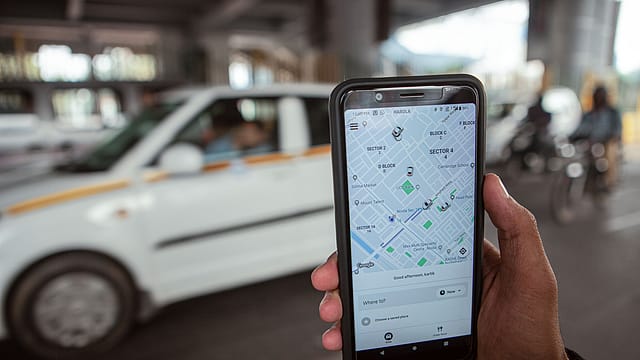New norms may put Ola, Uber in a bind
ADVERTISEMENT

Gone are the days when cab aggregators would arbitrarily charge thrice the amount of base fare or drivers cancel rides as per their whims. At least that's what the latest guidelines by the Ministry of Road Transport and Highways seem to suggest. As per the latest rules—titled Motor Vehicle Aggregator Guidelines, 2020—cab aggregators shall be permitted to charge a maximum surge price of 1.5 times the base city taxi fare to be fixed by respective state governments.
During non-peak hours, the aggregators shall be permitted to charge 50% lower than the base fare. This move has brought the app-based taxi aggregators—which includes the American giant Uber and the Bengaluru-based Ola—under the regulatory framework. The guidelines also state that no aggregator will be able to do business unless granted a licence by the state government. This is an important step considering that ride-hailing services were free to ply without too many checks by the state government. While they were already brought under the ambit of the Motor Vehicles (Amendment) Act, 2019 last year, it is only now that the ministry has notified guidelines.
“[It will] promote asset utilisation which has been the fundamental concept of transport aggregation and also substantiate the dynamic pricing principle, which is pertinent in ensuring asset utilisation in accordance with the market forces of demand and supply," the rules said.
Fortune India tried to reach out to both Uber India and Ola for comments but they refused to offer any reaction at this point.
The new guidelines, however, are being hailed as a welcome move for the drivers. These new rules now mandate that the cab driver will have to receive at least 80% of the fare applicable on each ride, while the remaining charges will go to the aggregator. Earlier, there was no fixed commission for cab aggregators. They were able to earn around 20-30% depending on the rides. Experts believe that this could secure driver's minimum earnings while formalising the entire process.
There will also be a penalty of 10% of the total fare not exceeding ₹100 for drivers if they cancel a booking without a valid reason. If the rider cancels, he/she would be liable to pay the same penalty too. Violation of the new licensing norms will result in a penalty of up to ₹1 lakh and cancellation of the licence.
"Complete police verification of the identity of the driver and his antecedents with a written record of such verification prior to fifteen days of on boarding. For facilitation of the same, the police authorities shall be provided access to the Aggregator’s Application Programming Interface (API) by the Aggregator. Subsequent to such verification, the police authorities shall grant certificate of good moral character without any criminal record to the driver," the notification said.
Drivers are often found working for more than 12 hours a day to make additional bucks and gain additional incentives. This is touted to change too. Cab aggregators will have to make sure that drivers are not logged in for more than 12 hours and they get a mandatory 10-hour break in case they cross the 12-hour limit, according to the new guidelines. On the safety front, too, the aggregators have make sure that their vehicles have a GPS-enabled facility and that the driver is plying on the assigned route.
RedSeer data suggests that cab rides dropped to around 30 million in October from 68 million in January this year. Experts suggest that the Covid-hit industry might take longer to recover after the new guidelines are in place.
Ashish Modani, vice president, ICRA, a corporate ratings firm, argues that that these new guidelines were expected, as the cab aggregator segment had remained unregulated for a long time.
“New guidelines will help in clearing uncertainty regarding regulation of cab aggregators in India. India, being one of the largest market globally, has huge long term potential and it will continue to attract investment from global players. Post Covid-19 lockdown, driver income has come under severe pressure resulting in increased delinquencies. Many drivers were earlier clocking over 12 hours on road which is now restricted under new norms. Nevertheless, clarity regarding commission sharing should improve transparency between drivers and aggregators,” he says.
Concerns, however, remain. To begin with, for cab aggregators, these new rules could come as a blow, especially when it is already hit by the pandemic. In such a scenario, price caps on commissions and higher compliance costs could be seen as an impediment, and with the increase in operating costs, could translate into higher prices for the consumer.